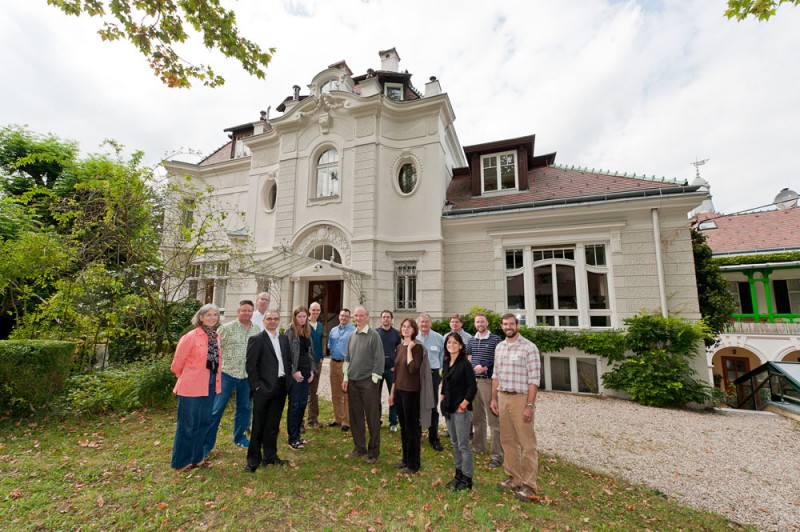The "Altenberg Workshops in Theoretical Biology" address key questions of biological theories. Each workshop is organized by leading experts of a certain field who invite a group of international specialists to the KLI. The Altenberg Workshops aim to make conceptual progress and to generate initiatives of a distinctly interdisciplinary nature.
Event Details

Picture Gallery
Niche construction theory (NCT) is a relatively new development within evolutionary biology, but one that has important implications for many adjacent fields of research, including the human sciences. NCT places emphasis on the capacity of organisms to modify natural selection in their environment and thereby act as co-directors of their own, and other species’ evolution. Examples of niche construction include animals manufacturing nests, burrows, webs, and pupal cases; plants changing levels of atmospheric gases and modifying nutrient cycles; fungi decomposing organic matter; and bacteria fixing nutrients. Organisms also construct and destroy resources and habitat utilized by other species in their environments (‘ecosystem engineering’). These interactions connect diverse organisms and create ‘engineering control webs’ and ‘eco-evolutionary feedbacks’ that potentially greatly affect the stability of ecosystems. While niche construction is a general process, human niche construction may be uniquely potent among that of all species. In the last 100,000 years, humans have dispersed from East Africa around the globe and exhibited massive population growth. This success story would have been impossible without their ability to modify environments to compensate for different climatic regimes and other challenges — manufacturing clothes and shelters, controlling fire, devising agricultural practices, and domesticating livestock. Recent genetic analyses strongly suggest that human cultural activities have triggered selective sweeps of alleles newly favored in these constructed environments, thereby substantially shaping the human genome. Humans have become adapted to a cultural niche. At the same time, human cultural activities have created new niches for other species, such as domesticates and commensals, whilst destroying countless others by eroding engineering control webs. The basis for human success as a species is the inordinately high capacity for learning that its members possess. The significance of acquired characters to evolutionary processes becomes amplified with transgenerational culture, creating what anthropologists refer to as “traditions” — patterned ways of doing things that exist in identifiable form over extended periods of time. When humans engage in niche con-struction, they thereby modify the learning environments for themselves and others in their population, scaffolding innovation and channeling development along particular pathways. Through their activities humans construct not only an ecological niche but also a developmental niche, an aspect of NCT that remains under-explored. As of yet, the developing interest in human niche construction may seem akin to a ripple within the human sciences as a whole, but there is growing evidence of a multidisciplinary initiative that includes fields such as philosophy, primatology, psychology, evolutionary anthropology, and demography. In any one discipline, the impact of NCT may still yet be modest, but across them collectively, it is starting to become a powerful movement.


